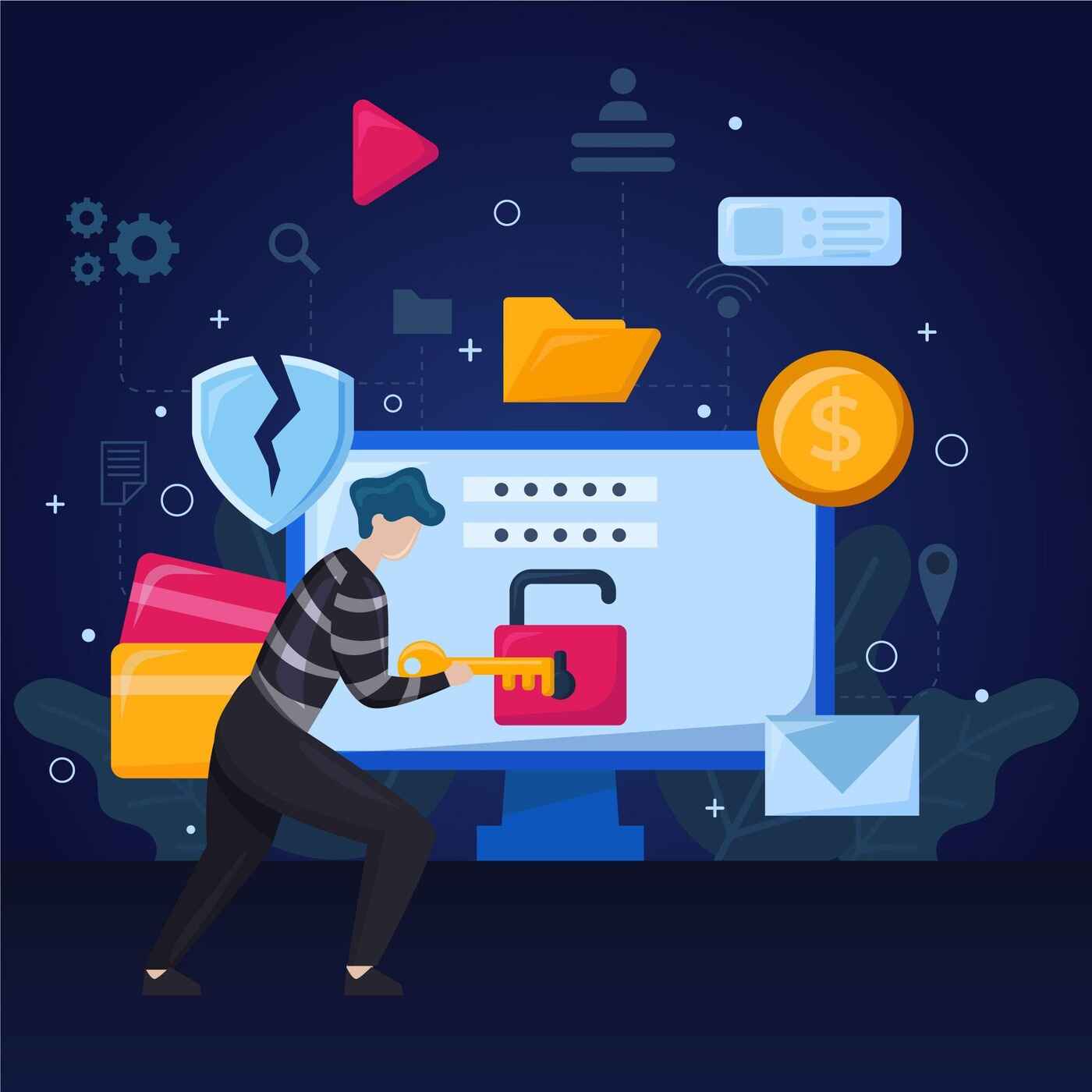In the digital age, one of the hardest things for businesses and governments to deal with is fraud that happens when individuals buy items. When you buy products online or through automated systems, it’s easy to cheat. If you cheat when you buy things, you could lose a lot of money, hurt your reputation, and get in trouble with the authorities. People who buy goods have come up with new techniques to discover, halt, and deal with fraud that happens when they buy items. These technologies lower the chances that these threats may happen. This essay covers a lot about different technologies that can help you identify fraud when you buy things and what they can achieve.
What does it mean to tell someone a falsehood when you buy something?
When people or businesses trick the system to get something they shouldn’t have while they are buying it, they are committing procurement fraud. They could be lying about how many or how good the things are, making phony bills, talking to suppliers, or even hiring someone else to determine what to buy. These kinds of dishonest behaviors affect the company’s money, reputation, reliability, and legal position.
You need to prevent procurement fraud these days since buying items means dealing with sophisticated supplier networks and contracts that are worth a lot of money. This will make businesses more honest, open, and good at what they do.
When you buy something, there are a few ways that someone could trick you.
To stop procurement fraud, you need to know what it is and how it works. There are a few ways that fraud could happen when you buy something:
Fake money
Invoice fraud is when someone sends fake or inflated bills for goods or services that were never delivered. A worker can say it’s okay to pay for a service that doesn’t exist, or a supplier might charge more than they claimed they would.
Collusion
When workers and suppliers work together to affect how customers buy things, that’s called collusion. This could involve modifying bids in an unfair fashion, raising prices, or canceling contracts. Companies who make arrangements like these lose money and have a harder time competing.
Getting and giving money
To get better service, businesses pay off and bribe persons who work in procurement. A supplier could offer money, bonuses, or other benefits to get contracts or speed up the buying process.
When you lie to get what you want,
When someone lies about how good, how much, or how quickly they will offer you a service or product, that is fraud. For example, a supplier can send you faulty products or lie to you about when they’ll pay you.
Giving Advice
Bid rigging is when one firm gets an unfair edge over another company during the bidding process. This happens when suppliers band together to change bids or end contracts. This makes it challenging to establish a fair and competitive way to do things.
How to Tell If Someone Is Trying to Steal Your Money
The good news is that technology has made it feasible to build tools that help consumers not get ripped off when they buy items. These systems combine AI, machine learning, data analytics, and blockchain technology to watch the buying process and give you helpful information.
1. Software that keeps you from being cheated while you shop
Software that looks for procurement fraud uses AI and machine learning to discover trends in procurement data that don’t make sense. The program looks for things that don’t seem right, such companies who don’t talk to their suppliers very often, bills that are the same, or pricing that are too high. It works with current enterprise resource planning (ERP) systems so that procurement managers can keep track of things and be told when fraud is identified.
Pros:
- Finding fake businesses quickly.
- Reports and notifications that happen by themselves.
- Using the systems that are already in place.
- You might not have spotted these sneaky items before.
2. Things that assist you remember how much money you’ve spent
Businesses can use technology to keep track of how much they spend. These apps check the goods you’ve bought in the past to see whether you’re experiencing any problems or spending your money in weird ways. For example, they can show when an employee repeatedly buying from the same supplier at prices that are higher than typical or that aren’t part of a normal pricing agreement.
Things that are good:
- It shows you how people spend their money.
- Finds symptoms of fraud right away.
- Keeps prices down and makes sure everyone follows the regulations.
- Getting things is easy.
3. What to deal about the risk of suppliers
Tools can help you deal with supplier risk by making sure that your suppliers are honest and reliable. These tools check to see if a provider has ever lied, if they have adequate money, and if they follow the rules. Businesses can uncover difficulties and avoid vendors who are scamming them by keeping a close check on all of their suppliers all the time.
Pros:
- It helps you locate sellers who are likely to cause difficulties soon.
- If you don’t trust a store, don’t buy anything from it. This makes it less likely that someone will commit fraud.
- It’s easier to choose stores.
- It’s simple to use.
4. Buying items via blockchain technology
Blockchain technology is transforming the way people purchase by keeping a clear, safe, and permanent record of everything they buy. It helps uncover fraud, including sending someone two bills, modifying the terms of a contract without their permission, or doing something else without their permission. Blockchain keeps track of things that can’t be changed and offers you a list of everything you’ve bought. This makes it simple to find fraud.
Pros:
- Records of transactions that can’t be changed.
- People are less likely to cheat when contracts are protected.
- It helps you remember things and see what others are doing.
- It helps businesses and suppliers trust each other more.
5. Websites for e-procurement and e-sourcing
E-sourcing and e-procurement platforms handle a lot of the work that goes into buying products, such as bidding, picking suppliers, and keeping track of contracts. They use algorithms to make sure that the buying process is fair and open. If there are any difficulties, such as bids that don’t match the regulations, they are marked as fraud.
Things that are good:
- Ensures that the buying procedure is clear.
- Finding and working with vendors is easy.
- It instructs them exactly what to do when it’s time to do an audit.
- It stops people from lying and making mistakes.
How to Choose the Best Tool for Your Business
When you pick fraud detection solutions for your organization, keep these things in mind:
It’s easy to put together.
You should be able to use the product with the ERP or buying systems you already have. This makes it simple to use and guarantees that everything functions well without needing to tweak the system a lot.
Making things more personal
Every business has different needs. Choose tools that you can change to fit how you operate and get things done.
Alerts that go off right away
Get tools that help you view what’s going on right now and tell you if something doesn’t look right. Warnings that come at the proper time let you act fast and minimize the harm to a minimum.
The chance to get better
It will be harder and harder to find the things you need to acquire as your business expands. Make sure the tool can manage more data and harder tasks without slowing down.
Simple to use
It should be easy to understand and use. People won’t be able to utilize a product right away if they have to learn how to use it first. It may not be able to discover fraud right away.
The best way to stop folks from cheating while they shop is
You have to do something, but tools can assist you discover fraud. When you buy something, there are a few things you can do to assist keep fraud from happening.
Read a lot of the books you already own.
You might be able to find problems before they get worse if you keep track of how often individuals buy products. An audit should look at every step of the process of receiving things.
People should be able to buy goods.
Businesses should have clear standards regarding how they can tell customers how to buy products so that they can’t lie to them. These guidelines should help you learn how to buy goods, get things approved, and tell right from wrong.
People that work there get training.
People who have undergone a lot of training are better at spotting fraud and telling others about it. You should know why you have to follow the rules when you buy something and what will happen if you don’t.
Give each person a different job to do.
One individual shouldn’t be in charge of the whole buying process. People are less likely to commit fraud if they have more than one job because it’s harder for them to do it.
Check to see if everything is operating smoothly.
You should conduct a lot of research on a vendor before you hire them. This entails checking their money, their criminal past, and any proof that they have lied. If you have a good screening process, you can be sure that you only work with honest providers.
Conclusion
One huge difficulty is that buying things in a dishonest way could get you in trouble with the law, hurt your reputation, and cost you money. If businesses have the correct tools and systems in place, they can discover and stop fraud before it harms them. Businesses can stop a lot of procurement fraud with new technologies like AI, machine learning, blockchain, and e-procurement platforms. Following best practices, such completing audits often, having a clear plan for buying items, and training staff, will make the process safer and more open.
Companies may protect themselves from the bad effects of procurement fraud and make sure their procurement processes are honest by taking steps to protect themselves and buying the tools they need to find fraud.






